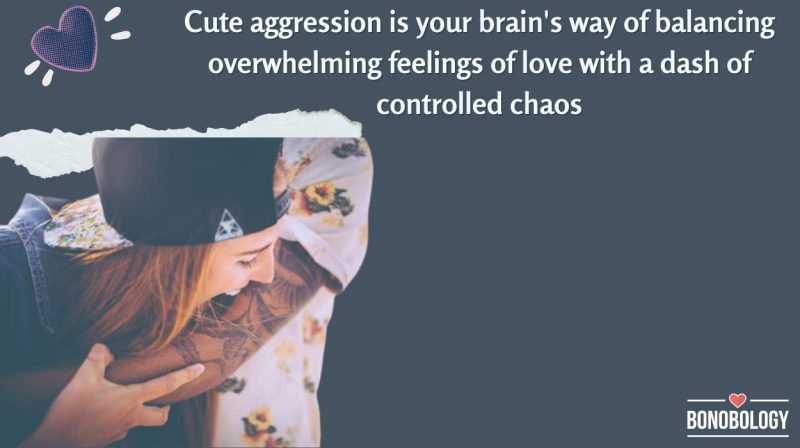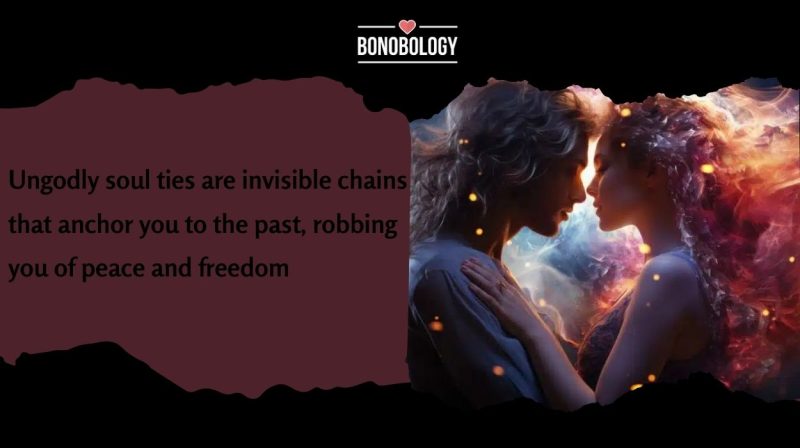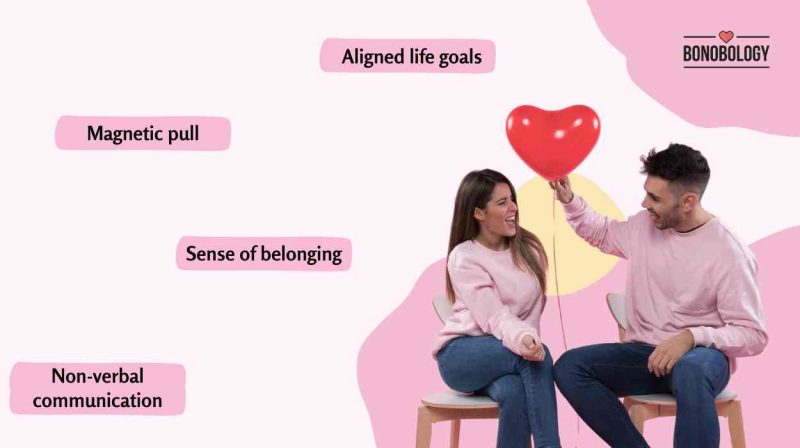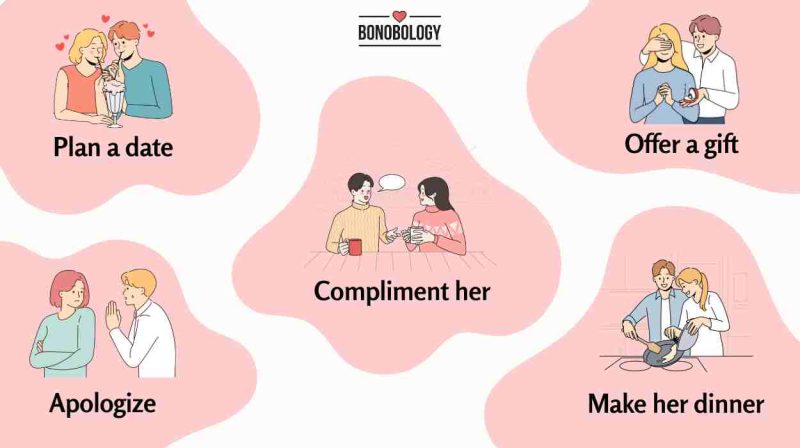It’s been said that when we pick a partner, we begin a story: one that constantly grows and evolves as we get to know our own selves and each other better, and as we deal with the stressors of life and inevitable relationship changes.
So whether we are in the beginning, the middle, or further ahead in our relationship story, it most likely won’t stay the way it is now and is bound to be challenged by internal or external events. To understand why relationship changes happen, what forms they can take, and how to navigate them, we turned to Tanvi Jajoria, co-founder of MentAmigo, counseling psychologist, and internationally certified Emotional Freedom Techniques (EFT) practitioner, for some insights.
What Causes Relationships To Change?
Table of Contents
According to Tanvi, the taste of every relationship changes with time and age. “A couple in their 20s won’t have the exact same relationship dynamics as a couple in their 60s. As we get older, we grow and change as individuals, driven by the desire to do better. Like us, our relationships evolve over time too, as we learn to share our life with our partner and start to understand the meaning and significance of having someone in our life,” she explains.
She says that the dynamics of relationships can also change with:
- Life events and experiences
- Personal and professional challenges
- Shifting life goals
“For instance, work-life stress or a change in roles and responsibilities within the relationship — say, moving from dating to marriage or parenthood — can trigger shifts in how couples relate to each other,” observes psychologist and relationship expert Jyoti Dadlani. “Relationships can also change when partners start to grow apart and seek a life outside of each other,” she adds.
Related Reading: How Perfect Partners Drift Apart
How Relationships Evolve
“Relationship changes may or may not always be for the better, but they are consistent and inevitable,” says Tanvi. To understand that, we need to take a closer look at how a relationship evolves in the first place. While there is no one way to be a couple and no two relationships follow the same script, there are some relationship stages that nearly all couples — monogamous, polyamorous, open, queer, heterosexual — go through:
1. Honeymoon stage
This is the early phase of a relationship when we simply can’t see, think beyond, and get enough of each other. It is also the stage of selective perception when we suspend negative judgment and can find no faults or imperfections in our partner.
And if we do, we are willing enough to look past them, says Jyoti. So how long does the pulse-quickening, toe-tingling, and heart-thumping honeymoon phase last?
- Researchers are divided on this. Some give it a few weeks to months, while some claim it can extend for as long as three years. Others have found similar levels of intense, but calmer, passion in couples who’ve been together for decades
- According to Jyoti, the length of the honeymoon phase varies from couple to couple and generation to generation, but it usually ends once real life and responsibilities start to trickle back in
2. Early attachment stage
This stage of getting to know someone at a deeper level comes with its share of growing pains, frictions, complications, arguments, and adjustments. When things get real and when your past, fears, emotional wirings, expectations, family dynamics, life’s boring necessities, doubts, and irritations start to slide into the equation – they are bound to test your bond.
As challenging as this can be, it’s a part of growing and changing in a relationship. And in deciding whether it can sustain, says Dr. Kathryn Foster, the author of When Your Relationship Changes: A Woman’s Journey. By this stage, many couples have spent enough time together to learn just enough about each other or spot any red flags or deal breakers to make that call.
Brain mapping studies have found that around 8–17 months into a romantic relationship, couples who do manage to remain passionately in love start to develop strong feelings of attachment as they begin to come together as a team and envision a future together.
Related Reading: 6 Month Relationship – 5 Things To Consider And 7 Things To Expect
3. Crisis stage
In a romantic relationship, time can be a big magnifier. It can amplify trust and respect as we learn to rely on, get candid with, and be vulnerable around our partner. It can intensify stirrings of companionate love — a slow-burning, sturdy, and committed love that is rooted in:
- Comfortable friendship
- Mutual understanding
- Deep affection
But it can also enlarge little irritants, niggling doubts, disillusionments, power struggles, and plateaus or shifts in feelings and priorities. Or it can heighten unresolved communication problems, differences in expectations, intimacy issues, and pesky arguments. It can even send big curveballs that catch us unawares.
They say there are years that ask questions and years that provide the answers. At some point over the long haul, we may begin to wonder whether our relationship is worth saving. The question often demands a choice: Do we come together as a team to work on the relationship? Or do we drift apart as our relationship changes with time and, eventually, go our separate ways?
4. Deep commitment stage
Couples who overcome the crisis enter the next stage of a relationship: one of deep commitment and stability. By this time, they have weathered enough storms to have learned to navigate difficult conversations and deal with any curveballs and crises that may roll their way.
This is also a phase of acceptance. Tanvi says, “As you mature, your life goals and priorities change, you learn to share your life with your partner, and accept their flaws which make them human, as much as you accept their perfections. This helps the couple bring out the best in each other; thus, their relationship evolves for the better.”
Still, it’s a given that your relationship will be challenged by change. There will be twists and turns down the road. And new relationship problems or circumstances will surface. After all, we live in a world where nothing stays quite the same.
Types Of Relationship Changes
Love is a verb, not a permanent state of enthusiasm, says relationship therapist and author Esther Perel. Like the moon, each relationship waxes and wanes and goes through different phases. This is all part and parcel of growing and changing in a relationship and moving forward. “A relationship needs to evolve with your personal development and life goals to be able to sustain itself,” says Tanvi.
According to Jyoti, you cannot stop a relationship from changing. She says whether it’s for the good or bad will depend on how you and your SO perceive the change and your willingness to:
- Adjust
- Compromise
- Commit
- Be accepting
- And be compassionate with each other
So what are the changes we can expect in the course of a long-term relationship? Let’s take a closer look:
Related Reading: 5 Brutally Honest Truths About Long-Term Relationships
1. You will slip into new roles and responsibilities
Whether you only started dating a few months back, or have moved from dating to going steady to living together or getting hitched, your relationship will be challenged by change.
For one, as your relationship progresses, you’ll go from adjusting and making space for each other to embracing and accommodating your friends, near ones, distant relatives, pets, pooches, and all the associated positives and peeves:
- “Once you move in together or get married, you will realize you aren’t living with just one person. Their families and other new people will come into the picture too,” says Jyoti
- “There will be other changes and adjustments at both the personal and relationship level, and they will affect your relationship,” says Tanvi
“Another big turning point is having a baby. Parenthood brings on different changes in men and women (and expectations from each other, as shown in this study), some that they happily embrace, and some that they struggle with (such as responsibilities of childcare, balancing work and family life, chores, and changes in intimacy),” says Tanvi.
2. You could face some life-altering events
A new job that means a longer commute and less family time, or one that involves moving cities and a long-distance relationship. The uncertainties and insecurities of job loss. Or the burden of grief or disease — some events will leave an imprint on your relationship.
For instance, one study has found that intimate relationships tend to become stronger if couples manage to adapt to negative life events, such as disease. At times, the same event can trigger different kinds of relationship changes:
- A Reddit user says the COVID-19 lockdown spelled doom on his relationship. “I feel like the problems that we ignored before lockdown came to face us when we were stuck together in a flat,” he adds.
- Another user says the lockdown solidified their relationship. They say, “We got time to be with one another and remembered why we are each other’s favorite people.”
3. Your sex life won’t stay the same
Your sex life will evolve as your relationship progresses. In fact, a change in libido is one of the common relationship changes after marriage and parenthood.
With the demands and stressors of modern life, family, and work, many couples who’ve been together for a while can experience a change in sexual desire or go through a dry spell at some point. It is also normal for partners to develop new sexual interests or try to switch things up in the bedroom.
But if your sex life has ground to a complete or abrupt halt, it’s probably worth looking into. After all, just like any other aspect of your relationship, this too needs work, as Esther Perel reminds in Mating in Captivity: Reconciling the Erotic and the Domestic. She says, “Too often, as couples settle into the comforts of love, they cease to fan the flame of desire. They forget that fire needs air.”
Related Reading: 7 Secrets About Sex Women Wish Men Knew
4. Your personal space will shrink and your shared and alone time will change
During the course of your relationship, there will be times when you will need to give up big chunks of your personal space, says Tanvi. That applies to any me-time or shared time with your partner, too, adds Jyoti.
“There will be stages where you will have no common interests in your relationship at all. Or you may not enjoy the same things. Your choices and preferences will change. All this will affect how you spend your alone time, your time together, and your relationship.”
According to Chandra, 68, who has been married for over four decades: “There is always a blurring and merging of personal space as two people build a life together. What matters here is: Can you both respect each other’s space, without either feeling restricted?
“Maybe you want to go for a walk now, but they want to do it later. Or you want to try a new restaurant or a new hobby, but they want to eat at home or do something else together. Whether it’s in the little things or big, can you give each other the time and space to be who you are and still grow together?”
5. Your goals may begin to diverge
We are creatures of change, and our needs change with time. The things we want from our life, our career, and even our relationship may not always stay the same.
Somewhere down the road, you both may end up wanting different things:
- Maybe you are not ready for marriage, but they are
- Maybe they want to adopt a baby, but you want to focus on your career right now
- Maybe you wanted kids, but aren’t so sure now or have changed your mind
- Maybe you both support each other career-wise, but don’t see eye to eye on where to settle down and set roots
“For young couples, the dynamics of a relationship shift when their personal and/or professional goals don’t align. Two people may be very compatible, but when these extremely important parts of their lives don’t fit together, they are forced to make a choice,” says Tanvi.
“These choices are not easy to make and can trigger conflicts, arguments, confusions, and expectations, which eventually impact the relationship,” she adds. Whether these changes drive a wedge and take you apart, or you reach out, renegotiate, and realign your choices – will all depend on the value you place on your relationship.

6. You will discover new sides to your partner
“When you see someone for two hours, it is easy to see the good. But when you see them round the clock, that’s when you really start to know them,” says Jyoti. Chandra agrees. “A relationship changes after marriage, just like the people in it. We marry a version of a person and that version can change with time. As you move forward, you will discover new things about your partner, much like you will find new sides to yourself.”
While some changes are natural, others may require intervention. If there is a sudden personality change, toxic blame, or you feel you’re walking on eggshells around your partner, it’s not a good sign and could even be a red flag.
A Quora user recalls: “When we were dating, he was so kind and considerate and really went out of his way for me. I was impressed! After we married … he started making it very difficult for me to contact my family and friends … After he held a knife to my throat, I figured it was time to go.”
Related Reading: 15 Relationship Red Flags In A Man To Be Watchful Of
7. You may grow apart over time
Sometimes, as time passes, couples who have made a commitment realize they are “two different clocks that do not tock in unison,” as Lang Leav says in Love & Misadventure. This is perfectly natural. Not all relationships are built to last and two people in love can grow apart.
“That’s okay. Some relationships change over time because they have served their purpose. In this case, accepting the change and letting go is the best you can do for yourself,” says Tanvi.
How To Deal With Relationship Changes
“We have been led to believe that if we are really in love, it will last forever. We will always have the wonderful feelings that we have at this moment … Unfortunately, the eternality of the in-love experience is fiction, not fact,” says counselor Gary Chapman in The Five Love Languages: The Secret to Love That Lasts.
So when our relationship changes, it can be quite jarring and intimidating at times. Sometimes, it may require us to step out of our comfort zone. But often, how these transitions affect us and our relationship is less about the changes themselves, and more about how we deal with them. Here are some ways we can tackle relationship changes:
1. Be accepting of change
“No person, relationship, or situation can remain exactly the same over the years. The more you understand the significance of change, the easier it is for you to accept it when you experience it,” says Tanvi.
Too often, when we come across change, we push back against it. While maintaining the status quo may be comfortable, it can also spell stagnation and that is the opposite of growth. As they say, a comfort zone is a wonderful place, but nothing ever grows there.
“You will need to acknowledge the discomfort that comes with change, because that’s natural, too – no matter how prepared you are for it. Suppressing your discomfort will not help you or your relationship in the long run,” Tanvi adds.
2. Find reasons for the change
When your relationship changes and you find yourself bothered by it, consider exploring the reasons for these developments. Are there some outside triggers or pressures, such as work or financial stress? Or have you or your partner undergone some big internal struggles or shifts lately?
While we can’t control change, we can use it to build better self-awareness about our relationship. We can make the alterations needed to sustain our bond, or work on it to make it better.
Related Reading: 11 Golden Rules To Make A Relationship Work
3. Keep communication lines open
When change comes knocking, it’s often best to talk about it. “Communicate your feelings about that new development with your partner openly. How do you feel about it? What do you think about it? How do they feel about it? Make space for such conversations,” advises Tanvi.
Before you do, she adds, take a quick appraisal —
- What are your expectations from yourself and your partner as you see the changes happening in your life?
- How would you like to be supported through the change and be there for them?
4. Be ready to compromise
Some shifts are hard to deal with and can fuel resentment in a relationship, especially if they are unexpected or unwanted. And what happens next? Blame can enter and start to sully the equation. If that is what you are dealing with, it is best to take a step back and focus on finding solutions instead. That may involve some level of compromise and letting go.
5. Focus on the positives of your partner and the overall relationship
So what can we do when our relationship changes because of a few transformations our other half is going through? Focus on their positives. According to one study, maintaining “positive illusions” and over-evaluating your partner can go a long way to making a relationship sustainable and happier.
Here, acceptance is key. “We’re human beings, we’re never going to be the same, but being patient and accepting each other’s flaws is something that will never stop us from growing with one another,” says Jyoti.
6. Identify the bad changes in the relationship versus the deal breakers
Focusing on the positives should not mean falling for toxic positivity, warns Tanvi. “Not all changes are for the good and it’s best to be wary of any red flags,” she adds. According to her, there are some bad changes in relationships, which can be worked upon such as:
- Lack of communication
- Intimacy issues (emotional, spiritual, physical, or sexual)
However, Tanvi says, there are some changes that should be seen as instant red flags:
- Any emotional, physical, and/or sexual abuse, irrespective of intensity
- Repeated patterns of unwanted behavior (such as breaching of boundaries)
- Lack of mutual respect for each other’s beliefs, preferences, or issues around consent
Related Reading: He Would Abuse And Then Apologise – I Got Trapped Into This Vicious Cycle
7. Get help if something doesn’t seem right
Tanvi says, “While the taste of every relationship changes with time, if something doesn’t sit right with you, or you sense something is amiss or could be a potential red flag, it is best to act on it.” So, talk to someone, seek help, communicate, and do what’s needed for your own and/or your relationship’s betterment.
Key Pointers
- All relationships change and evolve as they progress
- These changes may be due to time, age, and life events
- They can be brought on by personal and professional challenges or shifting life goals
- These changes can be different for everyone, but how they affect the relationship is ultimately up to us
- Acceptance, open communication, and focusing on the positives can help deal with relationship changes
- But sometimes, accepting the change and letting go of the relationship may be the only way forward
At the end of the day, in our love stories, as much as in our life stories, we will come up against the unexpected, the unbidden, and the unfamiliar. And like for any story, we will need to work hard on ours, own it, and rework some parts as we go, or even start afresh. After all, our stories shape us as much as we shape them.
7 Tips To Make It Through The Hardest Months In A Relationship
Your contribution does not constitute a charitable donation. It will allow Bonobology to continue bringing you new and up-to-date information in our pursuit of helping anyone in the world to learn how to do anything.























Featured
21 Undeniable Signs A Guy Is Claiming You
Why Do I Want To Bite My Boyfriend? The Psychology Behind It
Ungodly Soul Ties Keeping You Stuck? Learn How To Break Them
How To Feel Confident During Your First Sex Experience
200+ Creative Responses To “I Love You”
15 Things to Consider Before Making a Relationship Official
How To Make Him Obsessed With You: 21 Smart Tips
10 Best Apps for Long-Distance Relationships
21 Signs You Have An Unexplainable Connection With Someone
150 Words Of Affirmation Examples To Cement Your Bond
7 Obvious Signs He Likes You, As Per A Relationship Expert
How To Manifest Someone To Be Obsessed With You
100 Romantic Birthday Wishes To Make Your SO’s Day Extra Special
200 Romantic Text Messages That Will Make Her Want You Badly
How To Make It Up To Your Girlfriend: 20 Effective Ideas
Emoji Love Texts: 15 Creative Ways to Express Your Feelings
30 Romantic Emoji Meanings — Decoded for You
100 Things for Couples to Do Together
20 Signs of True Love From A Man
How Long Does The Honeymoon Phase Last?